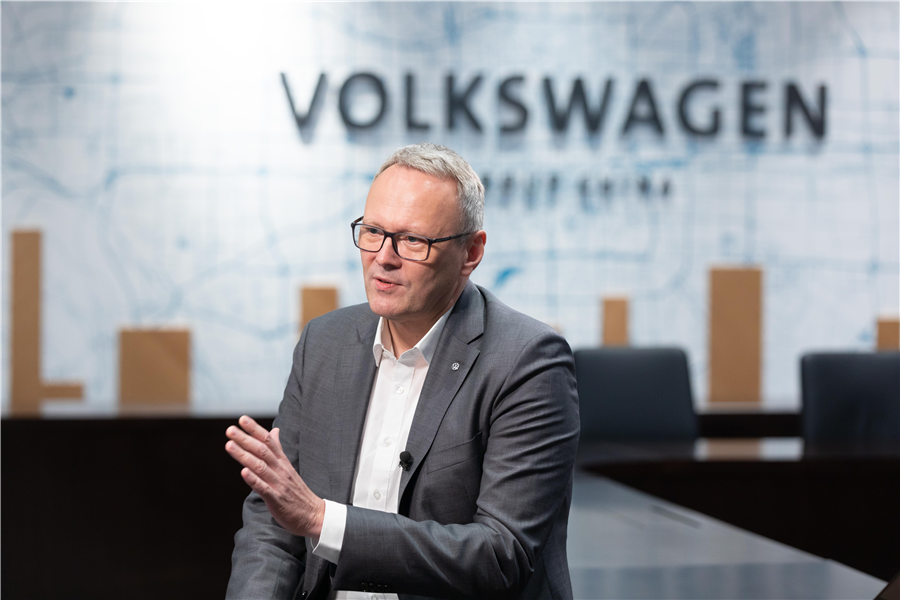VW predicts NEV success in China

Volkswagen is confident in China's new energy vehicle market, with the first car built on its electric-only MEB platform to roll off the assembly line this year, said Stephan Woellenstein, CEO of the German company's operations in China.
Two MEB models will launch before Spring Festival and are on massive sale from 2021, said Woellenstein in an interview on Friday.
"China is determined to make NEVs a success and Volkswagen is determined to make it a success, and I am confident it will happen," said Woellenstein.
He said despite the fall in NEV sales since July 2019, Volkswagen's plans will not change. The carmaker expects to sell 1.5 million such vehicles a year in 2025, and to spend 1.6 billion euros ($1.83 billion) in electrification and digitalization this year in China.
Volkswagen has inked deals to increase its stake in a joint venture with JAC to 75 percent from 50 percent and to acquire a 26 percent stake in China's third-largest battery maker, Gotion.
Woellenstein cited the two deals, worth more than 2 billion euros, as examples of Volkswagen's confidence in China's electric car market.
In terms of the NEV market, he said what matters most is not subsidies, which were a major driving force of sales growth, because financially they are not sustainable.
Instead, he said, it is the cars and services that make a difference, citing Tesla's popularity in China.
Woellenstein expects a gradually rising trajectory in the overall market, with the year 2025 as a tipping point. But he added that the growth may be slow in 2021-22.
In terms of sales, Volkswagen expects a single-digit fall this year, better than the China Association of Automobile Manufacturers' estimate of a 10-20 percent slump for the overall market.
In the first half of 2020, the company delivered 1.59 million vehicles under its brands from Jetta and Skoda to Audi and Porsche, down 17 percent year-on-year. China's overall car sales slumped 22 percent compared to the same period in 2019.
Despite the fall, Volkswagen grew its market share to around 20 percent by the end of June.
Woellenstein said he expected the automaker's sales in the second half of 2020 to be level with the same period of 2019.
Volkswagen has three car-making joint ventures in China: FAW-Volkswagen, SAIC Volkswagen and JAC Volkswagen.
Reuters reported earlier this month that Volkswagen is working with SAIC to prepare for Audi vehicles production. Woellenstein said Audi wants to have a new partner in China, but he added that FAW-Volkswagen will remain the largest one.
Invest in China Copyright © 2024 China Daily All rights Reserved
京ICP备13028878号-6
 京公网安备 11010502032503号
京公网安备 11010502032503号





